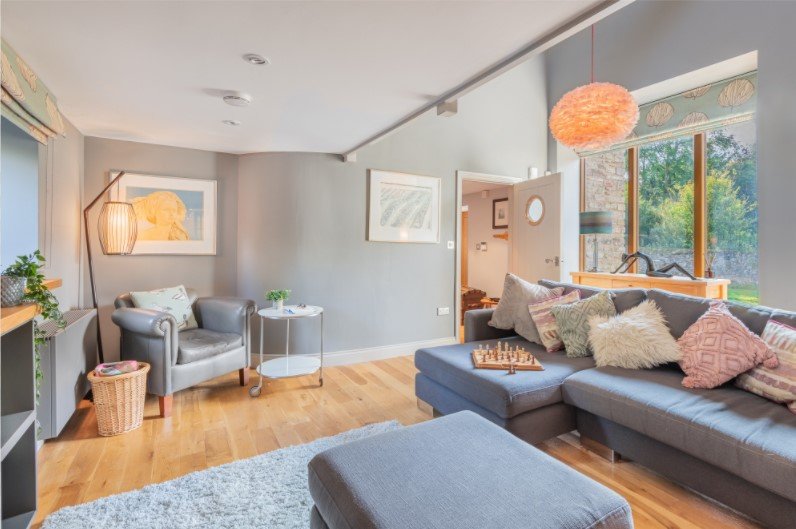Valuing a property with unique features can be a complex task, as traditional methods of property valuation may not fully capture the added value these features bring. Whether your property has a historical pedigree, architectural distinctiveness, or one-of-a-kind amenities, understanding how to accurately value these elements is crucial for getting the best price when selling or refinancing. A free property valuation can help provide insights into how these features contribute to the overall value. Here’s a guide on how to value a property with unique features.
1. Identify and Catalogue the Unique Features
Understand What Makes the Property Special
- Architectural Style: Unique architectural designs, such as Georgian, Victorian, or Art Deco styles, can add significant value to a property. If your home was designed by a well-known architect or features distinctive craftsmanship, these elements should be highlighted in the valuation.
- Historical Significance: Properties with historical significance, such as listed buildings or homes with a notable past, can command a premium. Documenting the property’s history and any preservation work undertaken can help justify a higher valuation.
- One-of-a-Kind Amenities: Special features like a private garden oasis, a home theatre, a custom-built wine cellar, or a rooftop terrace with stunning views can set your property apart from others. Make a list of all these unique amenities to ensure they’re considered in the valuation process.
Assess the Condition and Rarity
- Condition of Features: The condition of unique features plays a crucial role in their valuation. Well-maintained original elements, such as period fireplaces or stained glass windows, will add more value than those that are in need of restoration.
- Rarity and Demand: Consider how rare these features are in the local market. A unique feature that’s highly sought after in your area will likely increase the property’s value more than a feature that’s unusual but not particularly desired.
2. Research Comparable Properties
Finding Relevant Comparables
- Identify Similar Properties: Look for comparable properties that have recently sold and share similar unique features. This might include other historic homes, architect-designed properties, or homes with similar bespoke amenities. While exact matches might be rare, the goal is to find properties that share key characteristics with yours.
- Adjust for Differences: If comparable properties lack some of the unique features your property offers, make adjustments to account for these differences. For example, if a comparable property sold without a feature like a custom-built conservatory, you would need to estimate how much value that feature adds to your property.
Understand Market Dynamics
- Local Market Trends: Be aware of local market conditions, as they can affect how much value unique features add. In a hot market, unique features might command a higher premium, while in a slower market, the emphasis might be more on price than on special features.
- Buyer Preferences: Consider the preferences of buyers in your area. For example, urban buyers might place a higher value on features like private outdoor space or proximity to cultural amenities, while rural buyers might value land, views, or sustainable energy features.
3. Consult with Experts
Hire a Specialist Valuer
- Engage a Valuer with Relevant Experience: Not all valuers have experience with unique properties. Hire a specialist who has experience valuing properties with the types of features your home has. They’ll be better equipped to assess the added value of these features and provide a more accurate valuation.
- Obtain a Detailed Valuation Report: Ask the valuer to provide a detailed report that explains how each unique feature contributes to the overall value. This documentation will be useful when negotiating with potential buyers or lenders.
Consult with Estate Agents
- Speak with Local Estate Agents: Estate agents who specialise in your area can offer insights into how much buyers might be willing to pay for your property’s unique features. They can also provide an estimate of how long it might take to sell your property at different price points.
- Market Insight: Agents often have inside knowledge about buyer trends and preferences, which can help you position your property effectively in the market. They may also suggest marketing strategies that highlight the unique aspects of your home.
4. Consider the Cost of Replication
Estimate Replacement Costs
- Rebuilding or Replicating Features: For unique features, consider how much it would cost to replicate them today. For instance, if your property has custom woodwork, rare stonework, or bespoke built-ins, the cost of replicating these features can be significant. This cost can help establish a baseline for the added value of these features.
- Insurance Valuation: Ensure that your home is insured for its true replacement cost, especially if it has features that would be expensive to replicate. An accurate insurance valuation can also serve as a reference point when determining the property’s market value.
Restoration and Maintenance Costs
- Factor in Upkeep: While unique features can add value, they can also require special maintenance or restoration efforts. For example, maintaining a listed building or a home with period features can be costly. Buyers might take these ongoing costs into account, so be prepared to justify the value added by these features despite the potential maintenance required.
5. Unique Features in Marketing
Create a strong narrative – tell a story: When marketing your property, create a compelling narrative around its unique features. Be it the history behind the home, the craftsmanship involved in creating bespoke elements, or the lifestyle that the property offers—a well-told story can make your property stand out against other properties to the potential buyer.
Professional Photography and Videography: Top-of-the-line photography and videography should be used to represent the unique features of your house. The features most fitting, be it intricate architectural details, stunning views, or custom interior work, should be at the forefront of all marketing materials.
Target the Right Audience
Customized marketing ideas: Determine what type of buyer will best appreciate your property’s assets and concentrate all your marketing efforts on that segment of buyers. For example, luxury properties could be advertised in high-end channels, while historic homes should be advertised in specialized publications that appeal to history- or architecture-oriented buyers.
Leverage Digital Tools: Provide virtual tours, 3D walkthroughs, and social media to reach the maximum number of individuals. These tools help buyers grasp all the peculiarities of your property inside out before visiting the place in person.
6. Negotiate with Confidence
Justify the Asking Price
Provide Evidence-Based Justifications: Be prepared to justify the asking price by evidencing how the unique features of your property add value. It may be comparables, expert valuations, estimates of replacement cost with documentation of restoration or maintenance work done.
Highlight Demand: Avail any kind of information, such as strong interest in your property or a recent sale of comparable properties, to present your case for valuation at par during negotiations.
Be Open to Offers
Consider offers with a careful mind: Even though you would have a target price in your mind, always be open to offers and negotiations. Sometimes, buyers may have entirely different perceptions while valuing special features of the property, due to which an offer slightly lower than the target could still prove to be good if it is made by a serious buyer.
Negotiation Skills: Devise, in conjunction with your estate agent, the line of negotiation to ensure that you receive the best possible price out of the sale, but also be a realist. Be prepared to relate in detail the features during the negotiations to reaffirm the value.
Conclusion
A property with unique features requires a nuanced approach to its valuation, going beyond standard approaches. It’s not only about inventorying special features of your home but researching comparable properties, consulting experts, and marking the same in effective marketing for the placement and proper valuing of property for selling. The key is to make a case for what is special about your home and to justify how those features add to the value. The right strategy will bring out a valuation reflecting the true worth for your unique home.










